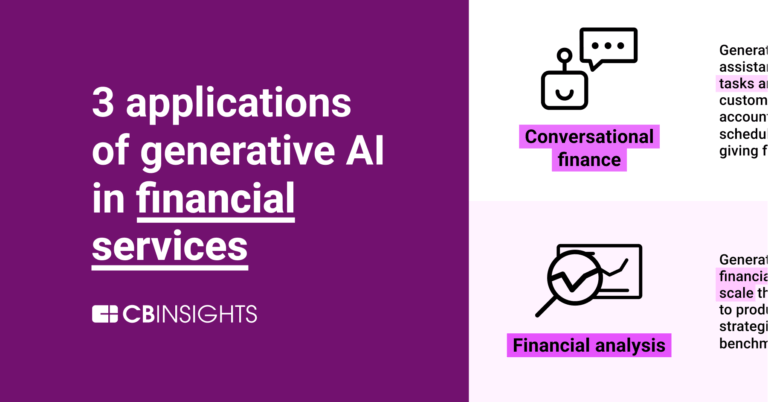
HSBC
Founded Year
1865Stage
Corporate Minority - P2P | IPOMarket Cap
192.26BStock Price
1104.40Revenue
$0000About HSBC
HSBC offers services including corporate and institutional banking, retail banking, wealth management, and digital banking services. It primarily serves individual savers, investors, corporations, and governments across various sectors. It was formerly known as HongkongBank. It was founded in 1865 and is based in London, United Kingdom.
Loading...
Loading...
Research containing HSBC
Get data-driven expert analysis from the CB Insights Intelligence Unit.
CB Insights Intelligence Analysts have mentioned HSBC in 2 CB Insights research briefs, most recently on Apr 3, 2023.
Expert Collections containing HSBC
Expert Collections are analyst-curated lists that highlight the companies you need to know in the most important technology spaces.
HSBC is included in 2 Expert Collections, including Food & Beverage .
Food & Beverage
123 items
HLTH 2025 Exhibitors
878 items
A look at the HLTH Vegas 2025 exhibitor list we’ve been building so your team can start scanning for relevant companies.
HSBC Patents
HSBC has filed 45 patents.
The 3 most popular patent topics include:
- computer network security
- electronic funds transfer
- payment service providers

Application Date | Grant Date | Title | Related Topics | Status |
|---|---|---|---|---|
9/29/2020 | 4/8/2025 | Production and manufacturing, Central banks, Rule engines, Process management, Manufacturing | Grant |
Application Date | 9/29/2020 |
|---|---|
Grant Date | 4/8/2025 |
Title | |
Related Topics | Production and manufacturing, Central banks, Rule engines, Process management, Manufacturing |
Status | Grant |
Latest HSBC News
Nov 18, 2025
HSBC Chair Race: Board Split on Tucker Successor The HSBC Chair Race: A Harbinger of Geopolitical Influence in Global Finance Just 12% of FTSE 100 companies have chairs with international experience, a figure that’s poised to shift dramatically if George Osborne secures the top spot at HSBC. The potential appointment of the former UK Chancellor isn’t merely a boardroom shuffle; it’s a potent symbol of a broader trend: the escalating convergence of political power and global finance. The internal discord within HSBC’s board, as reported by the Financial Times, underscores the high stakes and the complex geopolitical considerations now central to selecting leadership at one of the world’s most significant financial institutions. The Osborne Factor: Beyond Banking Expertise The shortlisting of George Osborne, as detailed by The Telegraph, Sky News, The Observer, and Reuters, has sent ripples through both the financial and political worlds. While his economic background is undeniable, his appeal to HSBC extends far beyond traditional banking credentials. HSBC operates at the nexus of East and West, heavily reliant on its presence in and relationships with China. Osborne’s established connections and understanding of international diplomacy, particularly concerning China, are seen as invaluable assets in navigating an increasingly complex geopolitical landscape. Navigating the China Relationship HSBC’s future is inextricably linked to its position in China. The bank generates a substantial portion of its profits from the region, making its relationship with Beijing paramount. However, this reliance also exposes HSBC to political pressures and potential risks. A chair with Osborne’s political acumen could prove adept at managing these sensitivities, fostering a constructive dialogue with Chinese authorities, and safeguarding HSBC’s interests in a volatile environment. This isn’t simply about business; it’s about navigating a new era of financial statecraft. A Broader Trend: Politicization of Finance Osborne’s candidacy isn’t an isolated incident. Across the globe, we’re witnessing a growing influx of former politicians and policymakers into the upper echelons of the financial sector. This trend reflects a fundamental shift in the role of finance – from a purely economic engine to a key instrument of national power. Financial institutions are increasingly expected to align with, and even actively promote, national interests, particularly in areas like trade, investment, and technological competition. The Rise of ‘Strategic Finance’ This phenomenon is giving rise to what can be termed ‘strategic finance’ – where financial decisions are explicitly informed by geopolitical considerations. Banks are no longer simply seeking the highest returns; they are assessing the broader strategic implications of their investments and lending practices. This requires a different skillset at the leadership level, one that combines financial expertise with a deep understanding of international relations and political risk. The demand for individuals like Osborne, who bridge these two worlds, is only likely to increase. Metric Implications for Investors and the Future of Banking The increasing politicization of finance has significant implications for investors. Traditional financial analysis, focused solely on balance sheets and profit margins, is no longer sufficient. Investors must now incorporate geopolitical risk assessments into their decision-making processes, evaluating the potential impact of political events and policy changes on their portfolios. This requires a more sophisticated understanding of the global landscape and a willingness to adapt to a more volatile and unpredictable environment. Furthermore, the trend towards ‘strategic finance’ could lead to a reshaping of the banking industry itself. Banks may increasingly prioritize relationships with governments and strategic partners over pure profitability, potentially leading to a concentration of power and a reduction in competition. The role of central banks and regulatory bodies will also become more critical in navigating these complex dynamics and ensuring financial stability. Frequently Asked Questions About the Future of Finance and Geopolitics What are the biggest geopolitical risks facing the financial sector right now? Currently, the most significant risks include escalating tensions between the US and China, the ongoing conflict in Ukraine, and the potential for instability in emerging markets. These events can disrupt supply chains, trigger economic sanctions, and create uncertainty in global financial markets. How can investors prepare for the increasing politicization of finance? Investors should diversify their portfolios, conduct thorough geopolitical risk assessments, and consider investing in companies that are resilient to political shocks. Staying informed about global events and policy changes is also crucial. Will we see more former politicians entering the financial sector? Yes, the trend is likely to continue as the intersection of finance and geopolitics becomes increasingly pronounced. Financial institutions will seek leaders with the political skills and connections necessary to navigate a complex and rapidly changing world. The HSBC chair race is more than just a search for a successor; it’s a bellwether for the future of global finance. As political and economic forces continue to converge, the ability to navigate geopolitical complexities will become the defining characteristic of successful financial leadership. The outcome of this search will undoubtedly set a precedent for boardrooms around the world. What are your predictions for the future of finance in a world increasingly shaped by geopolitical forces? Share your insights in the comments below! Share this:
HSBC Frequently Asked Questions (FAQ)
When was HSBC founded?
HSBC was founded in 1865.
Where is HSBC's headquarters?
HSBC's headquarters is located at 8 Canada Square, London.
What is HSBC's latest funding round?
HSBC's latest funding round is Corporate Minority - P2P.
Who are the investors of HSBC?
Investors of HSBC include Moloney Securities Asset Management and CoBe Capital.
Who are HSBC's competitors?
Competitors of HSBC include Synchrony, Credit Suisse, KASIKORNBANK, Natwest, UBS and 7 more.
Loading...
Compare HSBC to Competitors
Barclays operates as a financial services company providing banking and financial solutions. Its offerings include digital banking services, personal banking, corporate banking, wealth management, and international banking. Barclays provides insurance products, investment services, mortgages, loans, savings accounts, and credit cards. It was founded in is based in London, United Kingdom.

Citibank operates as a financial services company in the banking sector. The company offers a variety of services such as banking, credit cards, mortgage solutions, and personal loans. Citibank serves both individual consumers and businesses with financial products. Citibank was formerly known as City Bank of New York. It was founded in 1812 and is based in New York, New York.

Bank of America offers a range of banking, credit card, home loan, and auto loan services. The company provides personal and small business banking solutions, wealth management, and corporate and investment banking services. Bank of America primarily serves individuals, small and middle market businesses, and large corporations. It was founded in 1904 and is based in Charlotte, North Carolina.
UBS Investment Bank provides financial services and capital markets access within the investment banking sector. It offers services including corporate advisory, hedge fund solutions, government financial services, and wealth management, focusing on corporations, institutions, and individuals. It serves corporate clients, hedge funds, government entities, and wealthy individuals seeking investment banking solutions. It was founded in 1854 and is based in London, United Kingdom.

Barclays Investment Bank operates as a financial services company that provides investment banking, corporate banking, global markets, and financial research. The company includes services such as advisory, financing, risk management, and research for institutional investors, corporations, and governments. Barclays Investment Bank operates in sectors like corporate finance, investment management, and institutional investing. It was founded in 1997 and is based in New York, New York.
BNP Paribas is a European bank that provides various financial services. The company offers services including loans, financing, savings, investment, protection, and financial market activities. BNP Paribas serves private individuals, businesses, and institutional clients. It is based in Rome, Italy.
Loading...


